As the Director of Washtenaw My Brother’s Keeper (WMBK), Jamall Bufford makes a powerful impression of warmth and conviction. “Everyone sees his heart,” his colleague Justin Harper said. “Jamall is a great person. It is easy to work with him because he is a good listener, a team player, and completely true to his convictions. When someone has those qualities, a lot of great things can happen.”
Jamall Bufford is committed to making a lot of great things happen. My Brother’s Keeper (MBK) is a national initiative launched by Barack Obama in 2014. The overarching mission is to establish career pathways for boys and young men of color by empowering an intergenerational community. The program designates a monthly event called 50 Strong Breakfast on the second Saturday of the month to inspire mentorship and fellowship amongst Black and brown youth and professionals. A specified topic each event builds life skills such as financial literacy, skilled trades, Black history, expository writing, and more. The Washtenaw County affiliate launched in 2015. Bufford was asked to be on the steering committee after attending one of their monthly breakfast events. When the director position opened in 2019, Bufford was ready to step up. He didn’t stop at breakfast.
Bufford stretched WMBK’s outreach into the fields of music, sports, social justice, and leadership training throughout the county, going into schools, community halls, and youth centers on any given day. His vision is still expanding. My approach is to build a relationship with the students. I want to reach them where they are.”
In 2019 Bufford had recently returned from living in Los Angeles where his musical career had carried him. His passion for writing bars started with his Huron High School crew, including Andrew Mayer Cohen, now well-known as Grammy-nominated solo artist Mayer Hawthorne. The group went pro as the Athletic Mic League releasing three albums together, before Bufford went solo as Buff 1 in 2007. His two solo albums Pure and There’s Only One received critical acclaim. The sound is lush, complex, powerful, and articulate, with a blend of classic and unique lyricism, intelligent and important messages, layered over alluring harmonies and heat. Those early successes compelled him to spend a year as a performing musician touring nationally and internationally, sharing the stage with some of the biggest artists in the Rap genre.
For about two years on the road, he was touring successfully. “Bookers loved us,” he said. “Cause the crowds loved us.” Listed in the top 100 of URB MAGAZINE, and top 25 Rap Artists nationally by OK-THO, Buff 1 was named the best solo rap artist of the year by Real Detroit Weekly. “I was living my dream,” he told me. But then everything changed. “The scene started to slow down.” He said, “So, I had to make a decision. I didn’t go to LA to work a 9-5, so I came home in 2010.” When his friend Mike Hyter (a.k.a Man In Charge) was called to chase his own rap career, he suggested that Bufford take over his position at the Neutral Zone.
“I fell in love with it. I fell in love with sharing my love of Hip Hop with teens.” He advanced at Neutral Zone into the coordinator of all the music programs, and Youth Owned Record Label lead from 2010-2016. He then took his love for music education into the schools when a teacher friend at Tappan Middle School urged him to come work as a paraprofessional in the Special Education department, particularly to reach one disengaged student. “I saw the seeds of the ‘prison to pipeline’ being planted with young Black and brown boys at Tappan.” It was a wakeup call. “I learned a lot from that experience. I knew that the hip-hop programming and the restorative justice work we implemented at Neutral Zone could make a difference there.” They cobbled together a studio and allowed the students to engineer, write, compose, and to express. Bufford understood how therapeutic the act of making music could be. His inputs succeeded. The troubled student advanced from special-ed to the honor roll for the first time in program history. But for Bufford, the school system environment wasn’t sustainable.
His vocation in education didn’t deter him from his music career. “It was just that I didn’t have anywhere to record.” He was still writing and creating his own work. “Then I ran into a friend, rapper MaGestik LeGend.” They had performed together in the early 2000s. “He had a studio in his home,” Bufford recounted. They came up with the name The Black Opera. Their shows were a unique theatrical presentation. “We didn’t want to reveal our identities. We did wardrobe changes, wore masks, and had intermissions.” Again, Bufford toured the US and Europe from 2011-2018. The Black Opera became an artist collective with contributions from talents such as Cedrick Umoja, who did live painting, and vocalist Dani Darling among others. The album, African America is presented on Bandcamp as Ssocial conscious hip-hop—the self-described story of people who feel lost, disconnected from their heritage, and unwelcome at home. When he released Ghost II, “The inspiration to write came when I learned of the murder of activist Oluwatoyin Salua.” The common theme of social justice is compelling and heart wrenching. Fans still find Buff 1’s deep collection of sounds on Spotify, BandCamp, SoundCloud, and many music videos on The Black Opera YouTube channel. Even with critical success in the music world, “It was a hustle.” From his song “Dreamin Streets” his lyrics say it all:
I hustle ‘cause these streets feel like I am locked in hell.
So many souls printed in the snow tracks
little did he know that he was getting fitted for toe tags
So many jump man logos and Tim trees
So many young men postponed in them streets
Intrigued by the speed the life provides em
Emcees writing things they might can die from
I believe you speak things into existence
So, I breathe and speak dreams into the sentence
Close your eyes and imagine, whatever you fathom you can grab it.
You want sadness, you can have it. You want happiness then have at it.
In 2018, a friend invited Bufford to a WMBK summit event at EMU. “They were talking about the state of young Black and brown students in the area. I gravitated toward it.” With his passion and experience Bufford was a great addition to the conversation. Promoted from committee member to director, Bufford was a natural fit. “I finally found full time employment at a wage that allowed me to do the work that I had been focused on for years.” Right away he identified what was working and what needed more attention. “We had to find ways to connect more to the youth in the community, to get inside the schools.” As director, Bufford was ready to innovate. He knew they had to make the school environment more aligned, more suited, more of a homebase for the social/emotional curriculum to take hold. “We had to keep them in the building,” he said.
Ypsi and Scarlett Middle schools expressed a need. In the beginning, “It was just me.” Bufford shared. “I would use my training with restorative circles and bring in guests to share various career paths.” Principal Gerald Vazquez at Scarlett Middle School recognized his gift straight away. “His ability to connect and build camaraderie in front of young people is remarkable,” Vasquez shared with me. “He is honest and genuine and able to engender trust quickly where others haven’t.” The program has doubled over the years. “The impact has been immeasurable. Initially, he inspired kids to come to school just to be here for after school. He engages the students with the things they want to do,” Principal Vasquez reported. DJing and rap are the pathway, while increased academic involvement is the outcome. “Jamall has been a huge asset here, mentoring young men to navigate some of their challenges; they’ve really developed grit and perseverance.”
The Ann Arbor Community Foundation found out about these successes and offered an early financial lift. They wanted to put money toward the movement. WMBK, with Bufford at the helm, quickly expanded its offerings to integrate ideas with interests. The new programming amplified their music, sports, and academic approaches for a more effective fit.
Young Men of Purpose was created in partnership with Mentor2Youth, Parkridge Community Center, and Christian Love Fellowship Church to support social/emotional life skills at the middle school level through academics, leadership, college and career readiness to encourage high school transition. CLR Academy (Community, Leadership, Revolution) is a free youth sports academy that offers restorative justice, conflict resolution, and mindful techniques such as meditation, journaling, and yoga, along with nutrition education all wrapped around a sampling of sports, to bring programming right into the field. “We use sports as the hook to offer problem solving and life skills in real time,” Justin Harper, a member of the WMBK steering committee shared. Harper loved what Bufford was offering. “He was telling me all the cool things he was doing through these programs. Those are things I always wanted to do.” The practices have made real measurable change in the district. “Kids that were frustrated when they would lose a game or mess up, now have deep breathing, yoga, and mindfulness practices to approach these moments,” Harper said. “The parents express their joy, witnessing their kids’ improved actions and their attitudes.”
Formula 734 is the newest project of WMBK, inviting participants into Grove Street Recording studio to encourage musical ideas, expression, and performance capacity while providing social/emotional support and fellowship. Bufford’s mission has taken him into both tough spots and bright places. Formula 734 has a travelling recording studio to deepen their outreach. In partnership with Eli Saavat and the County Prosecutor’s office, WMBK developed diversion programming. “Instead of going through the court system some of these young people are diverted through our program,” Bufford explained. “I build relationships through the music. Some of their writing might not be beautiful at first. It can be angry and aggressive.” His approach encourages their honest expression. He doesn’t limit their use of language. Bufford creates a safe space first. “So, they can be vulnerable to talk about things that they are not comfortable sharing in general areas.” It is a strategy that works. “We start with what they are feeling, what they are going through. Before steering them in a more positive direction.”
Jamall Bufford is pointed in a positive direction and not stopping anytime soon. He has found partnerships, foundations, grants, and funding sources, before dreaming up the next big vision. Now his big dream is to locate all these various programs under one roof. WMBK is looking for a homebase. I would not doubt, a goal set for Bufford is a goal met. His colleague Justin Harper affirmed my sentiment, “I believe he’s a great person, placed in this position to do great things.” The path isn’t effortless, but it is inspired. You can trace it from his lyrics. “Close your eyes and imagine, whatever you fathom you can grab it. You want sadness, you can have it. You want happiness then have at it.”
Find out more information on the offerings of Washtenaw My Brother’s Keeper online at washtenawmbk.org/events. You can explore the musical content of Buff 1 and the Black Opera here at youtube.com/@TheBlackOpera or on Spotify at open.spotify.com/artist/5bBEAb0OfNmdXbinRi8WXk?si=56tHMnFjSeSUwMIdfDkPuwtheblackopera music.bandcamp.com/album/african-america.

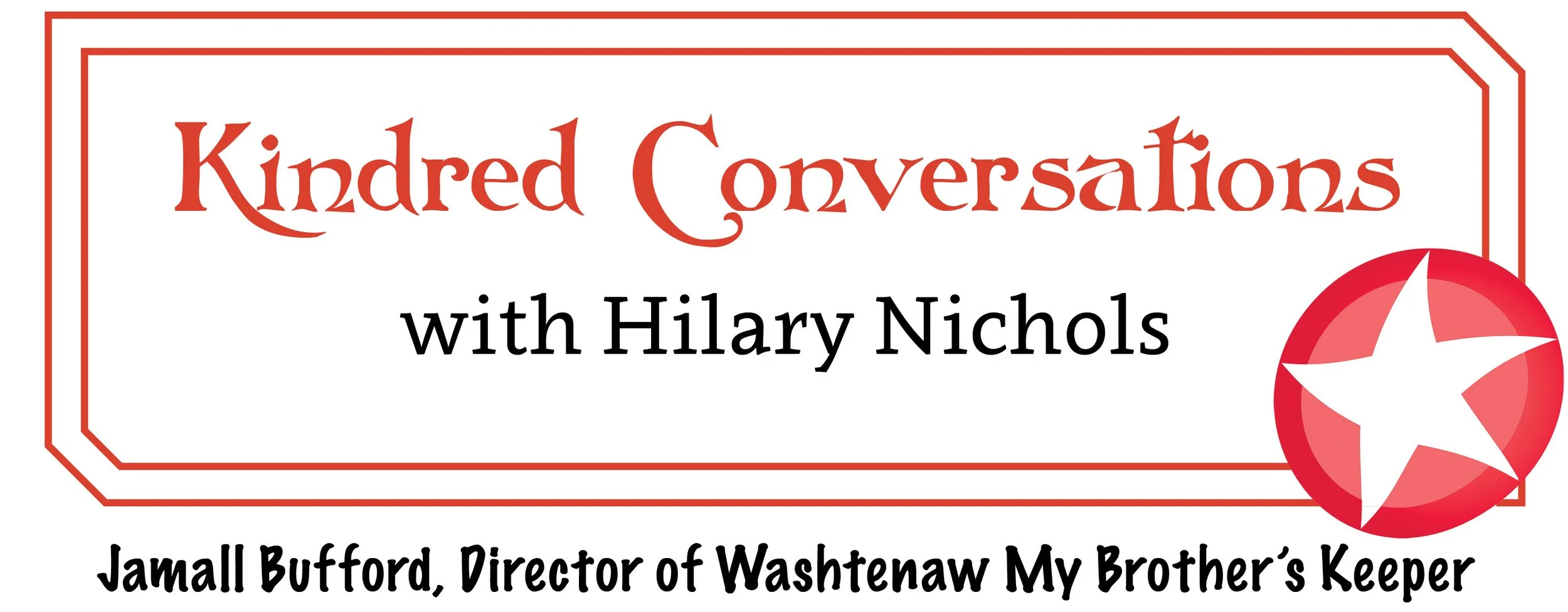
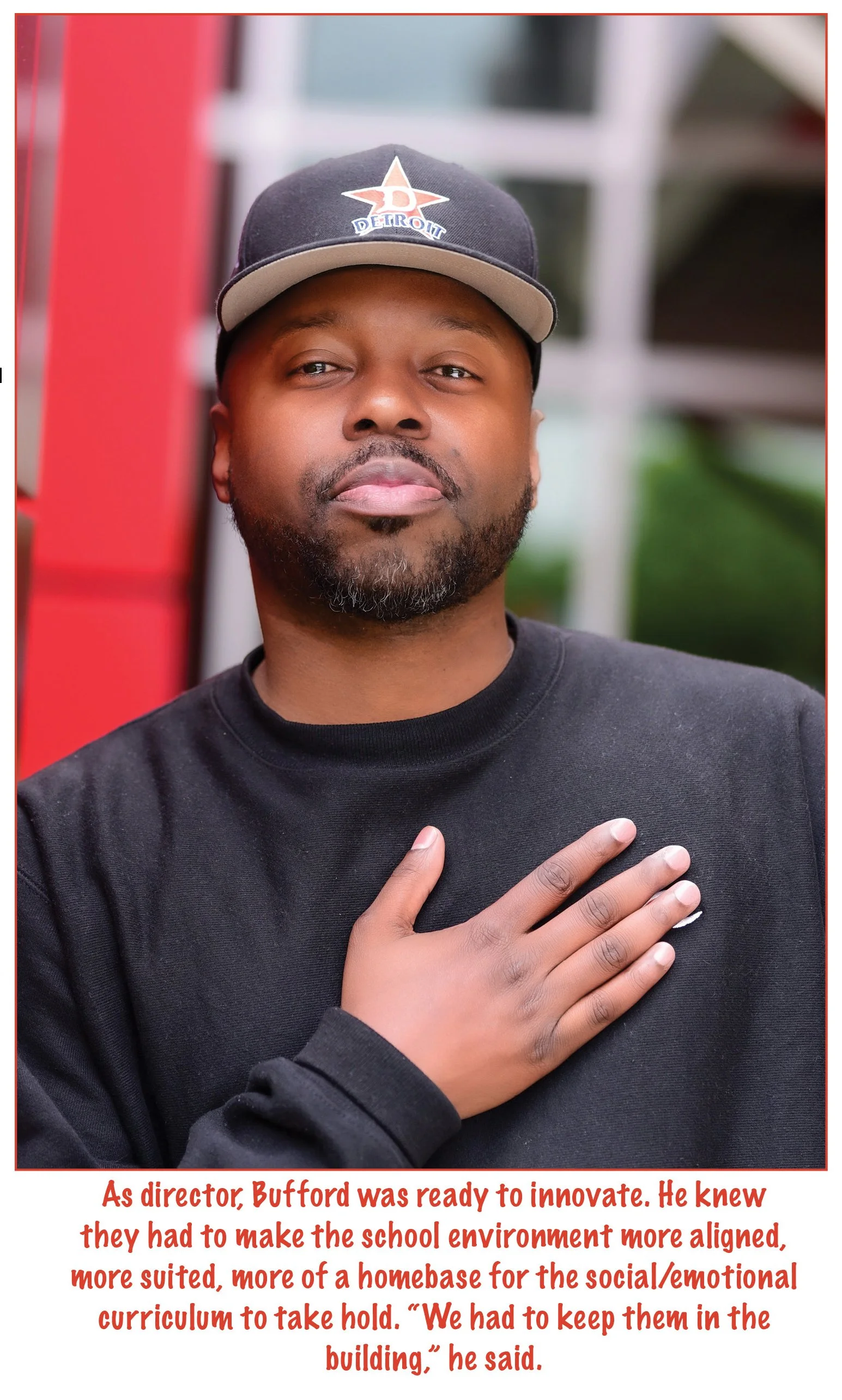
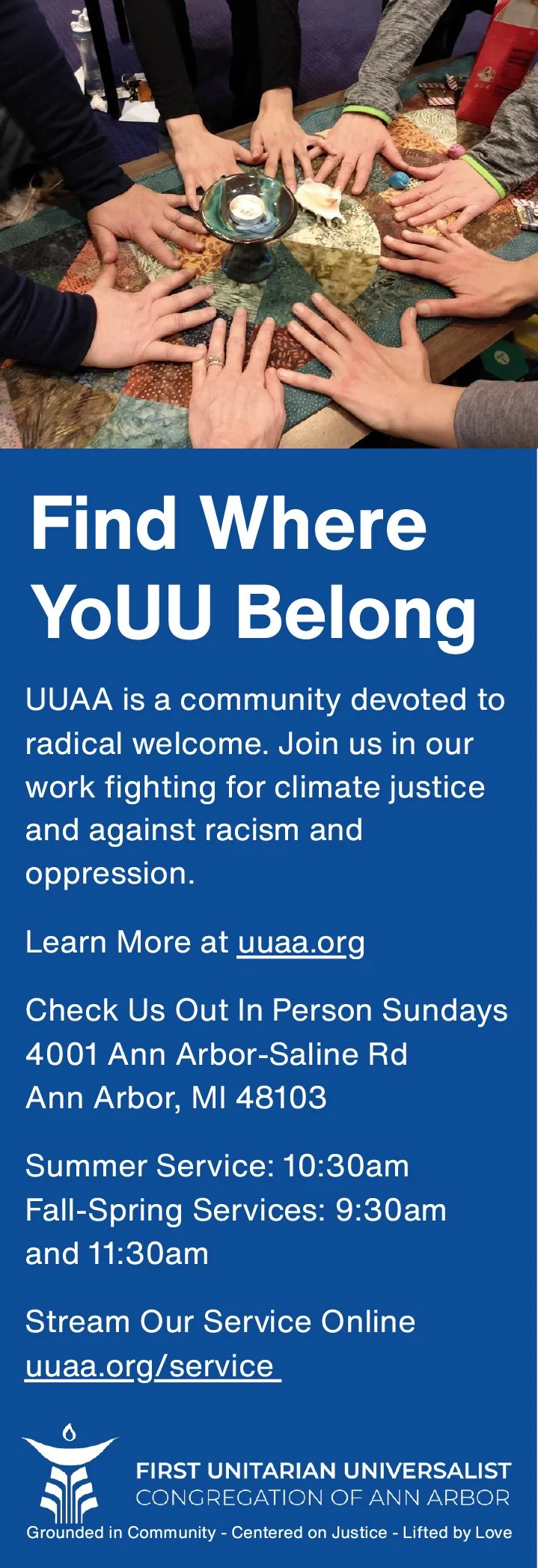

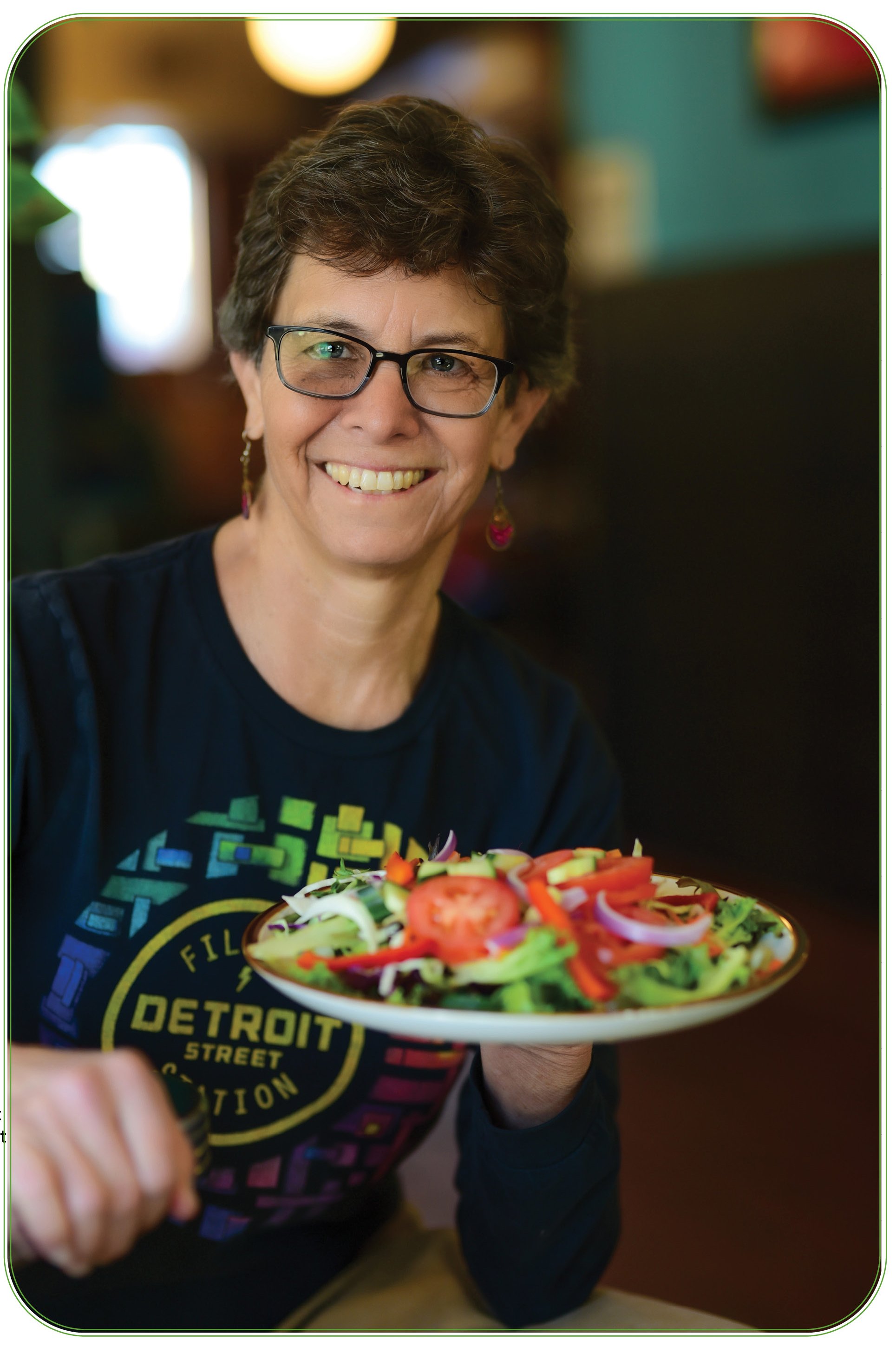
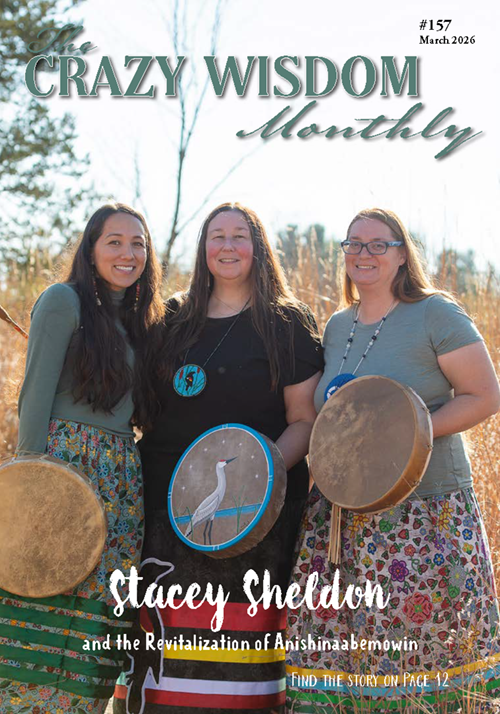




















































































































































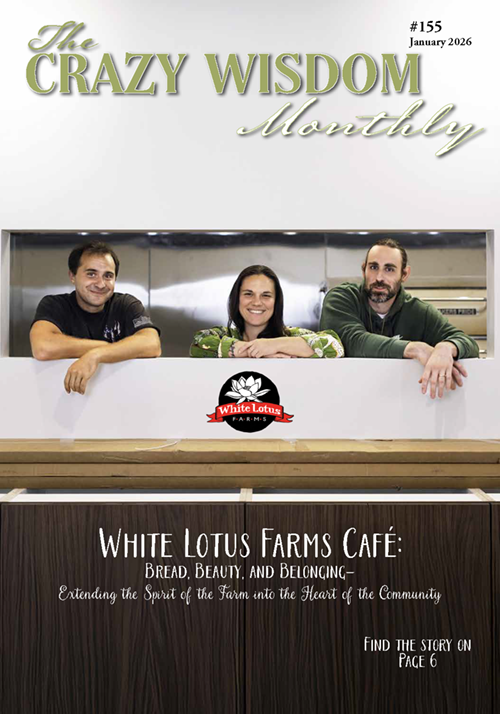










































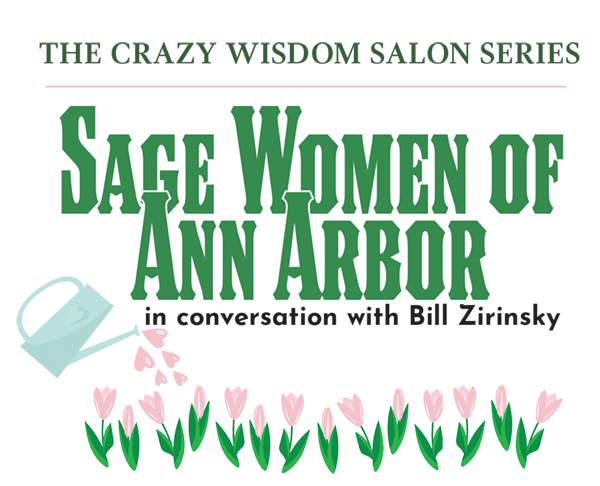

As the Director of Washtenaw My Brother’s Keeper (WMBK), Jamall Bufford makes a powerful impression of warmth and conviction. “Everyone sees his heart,” his colleague Justin Harper said. “Jamall is a great person. It is easy to work with him because he is a good listener, a team player, and completely true to his convictions. When someone has those qualities, a lot of great things can happen.”